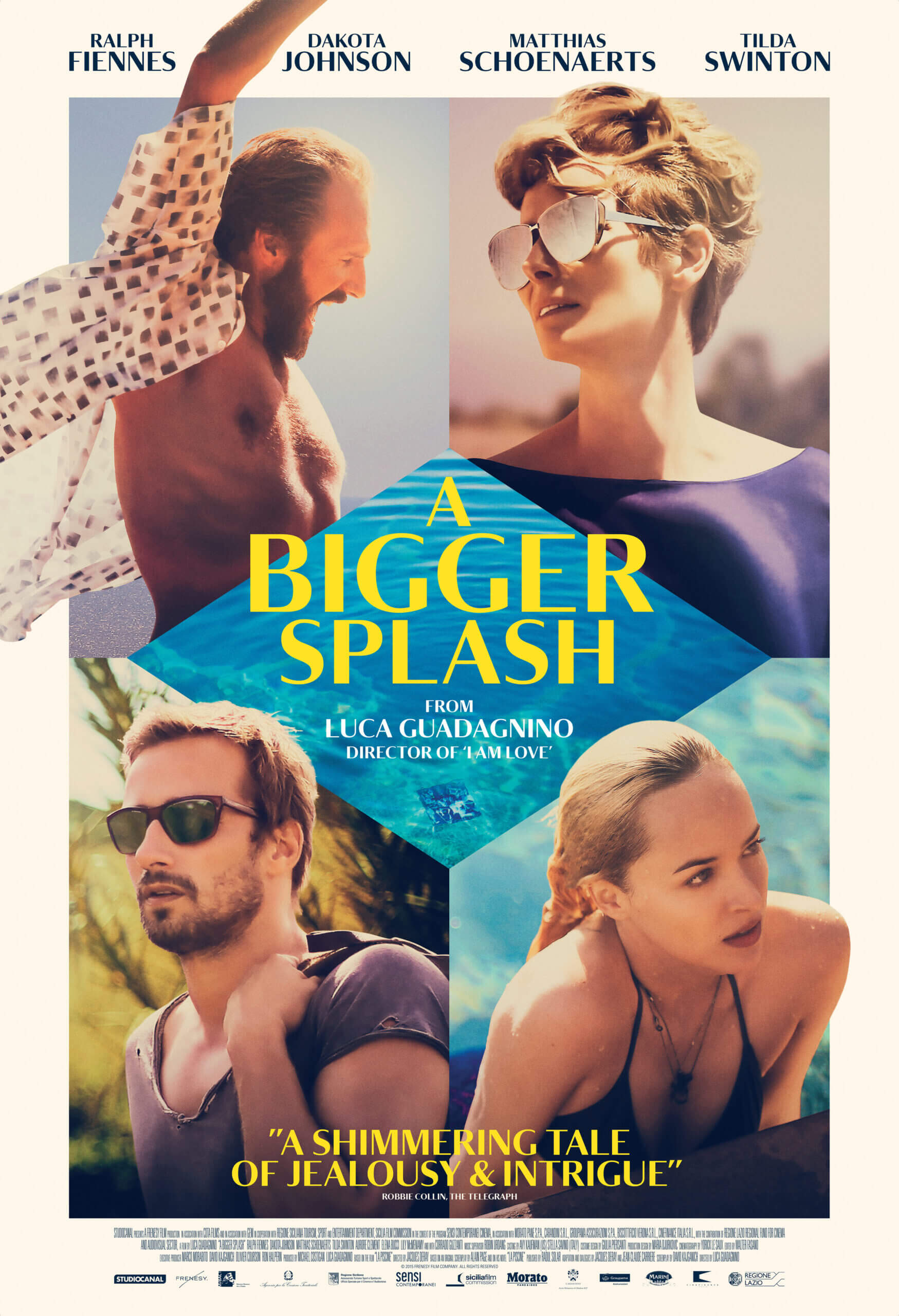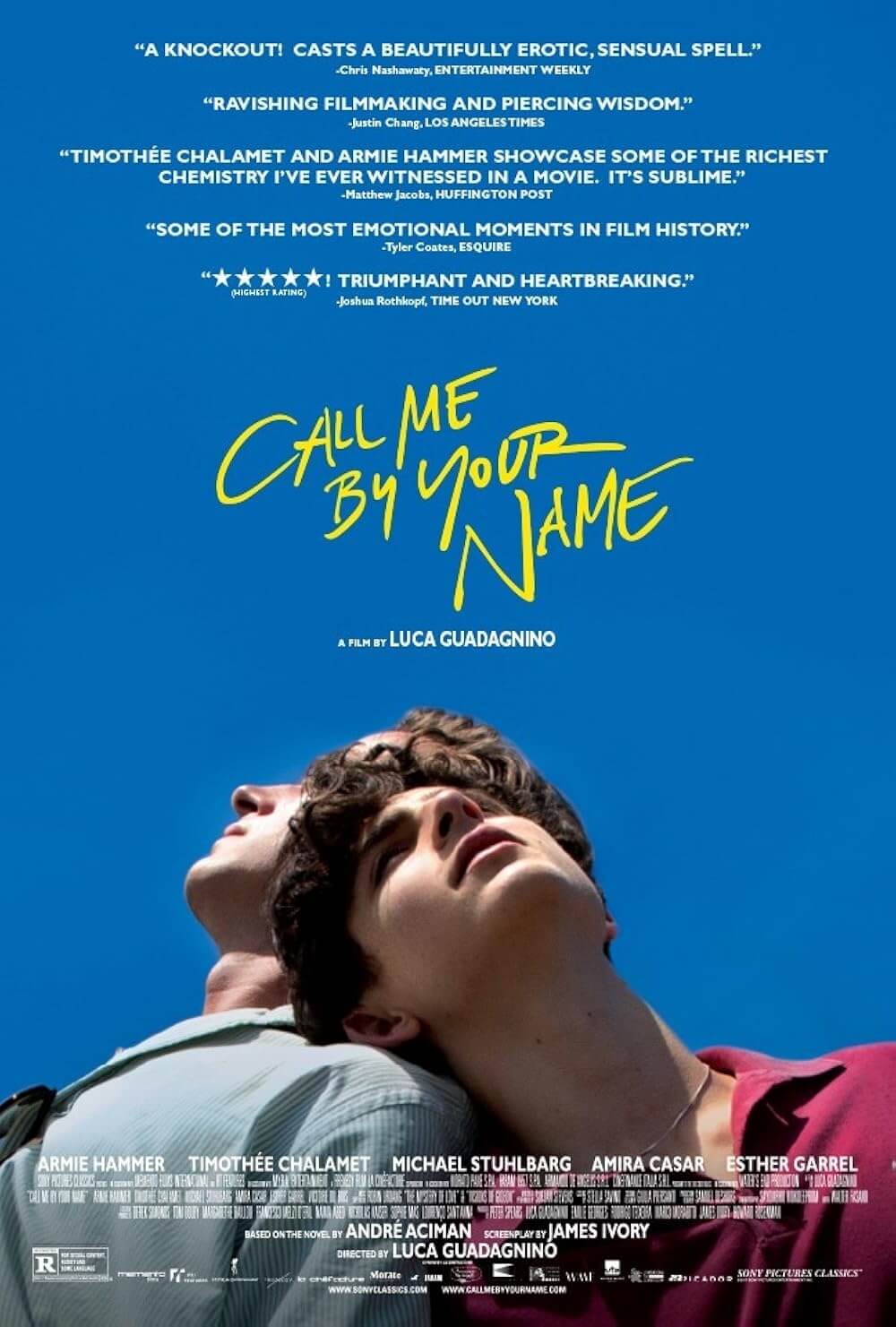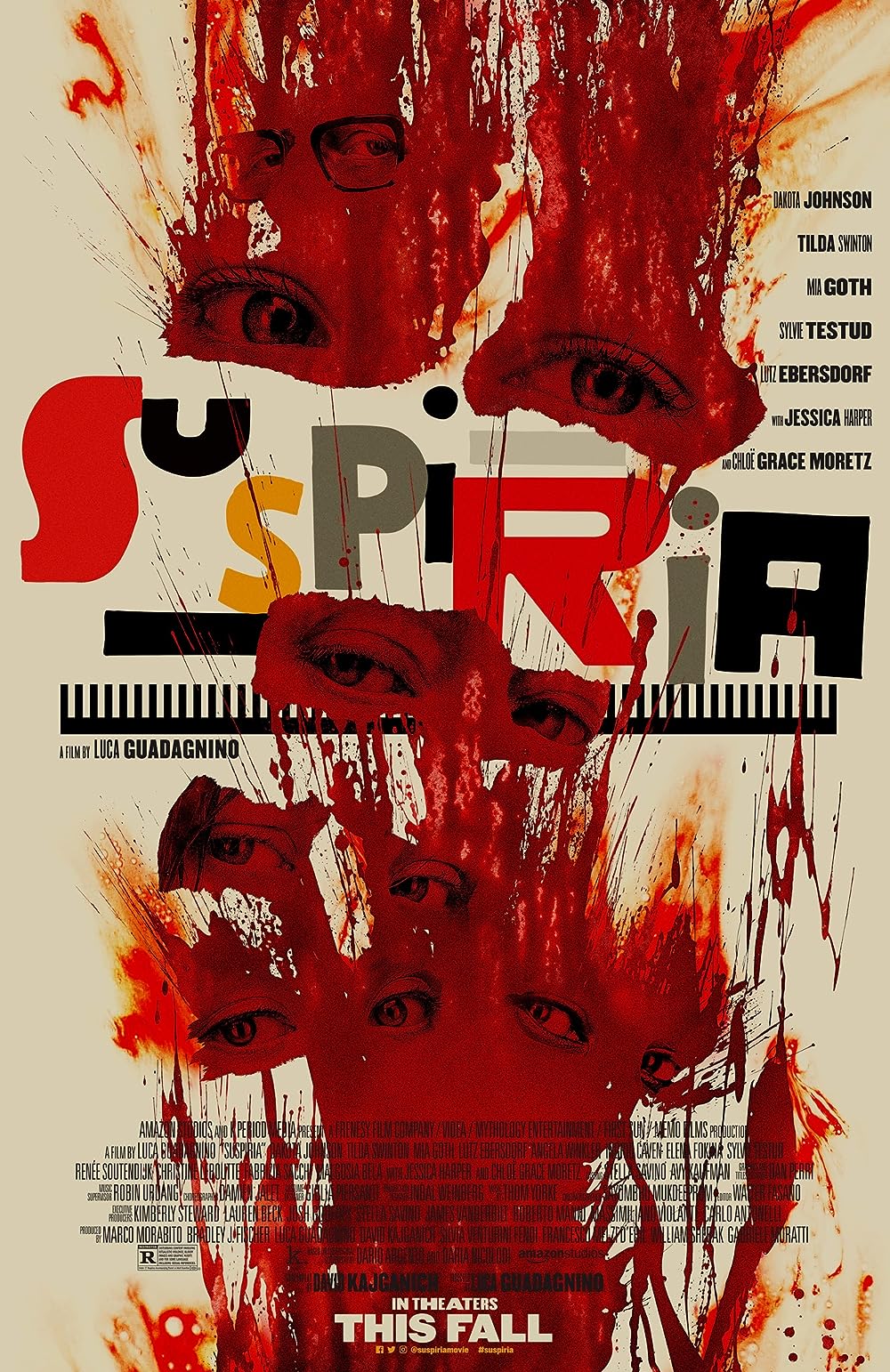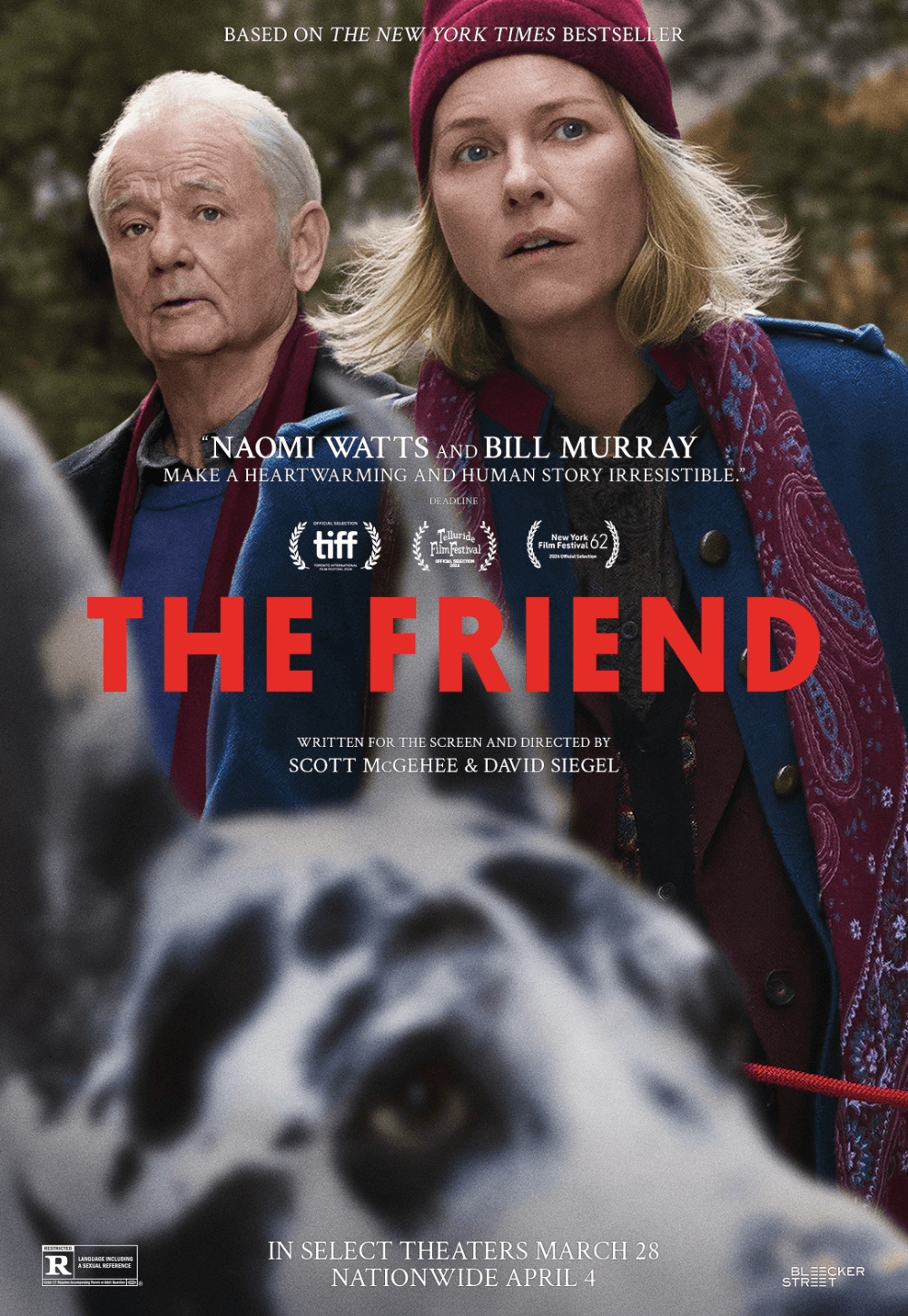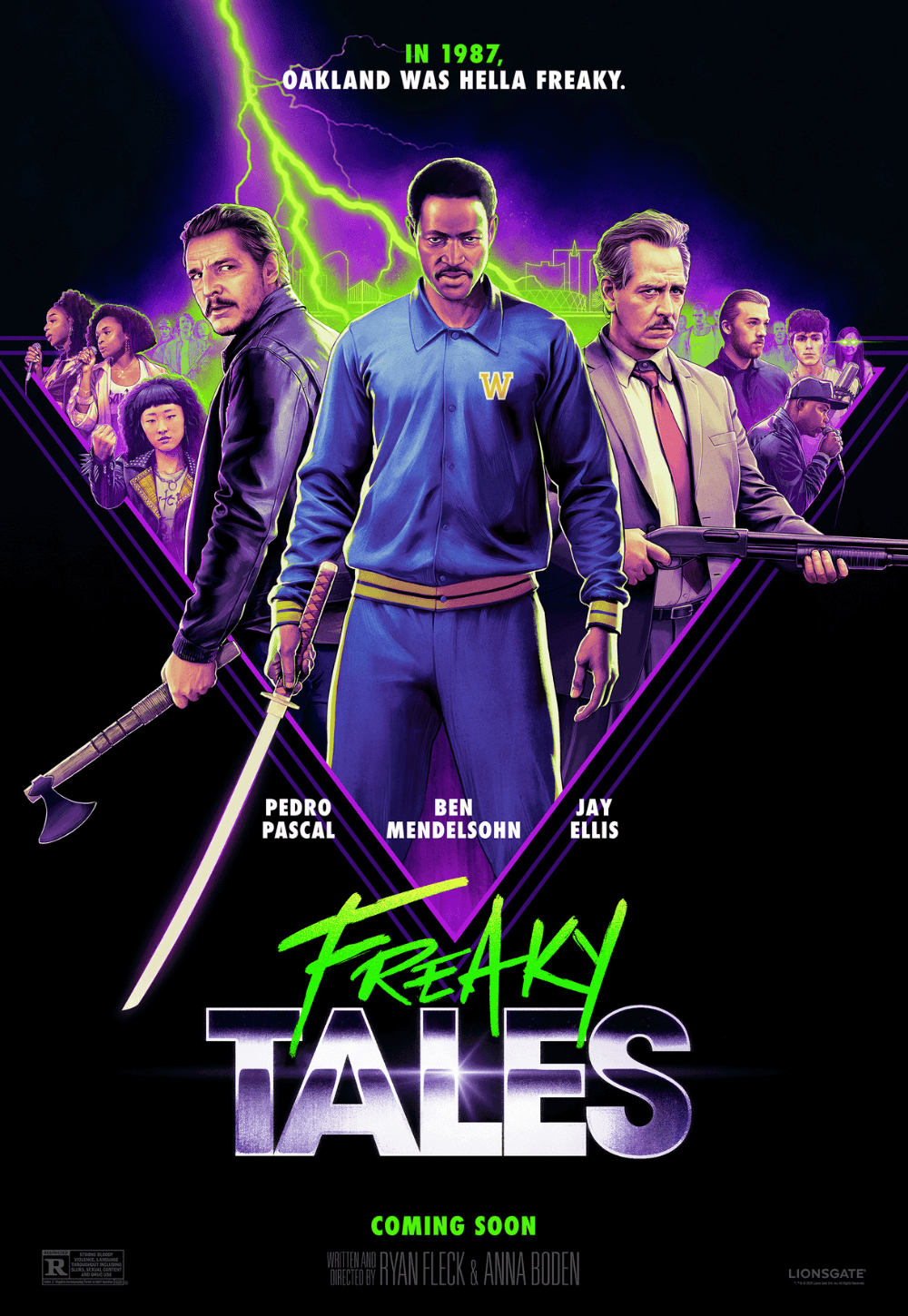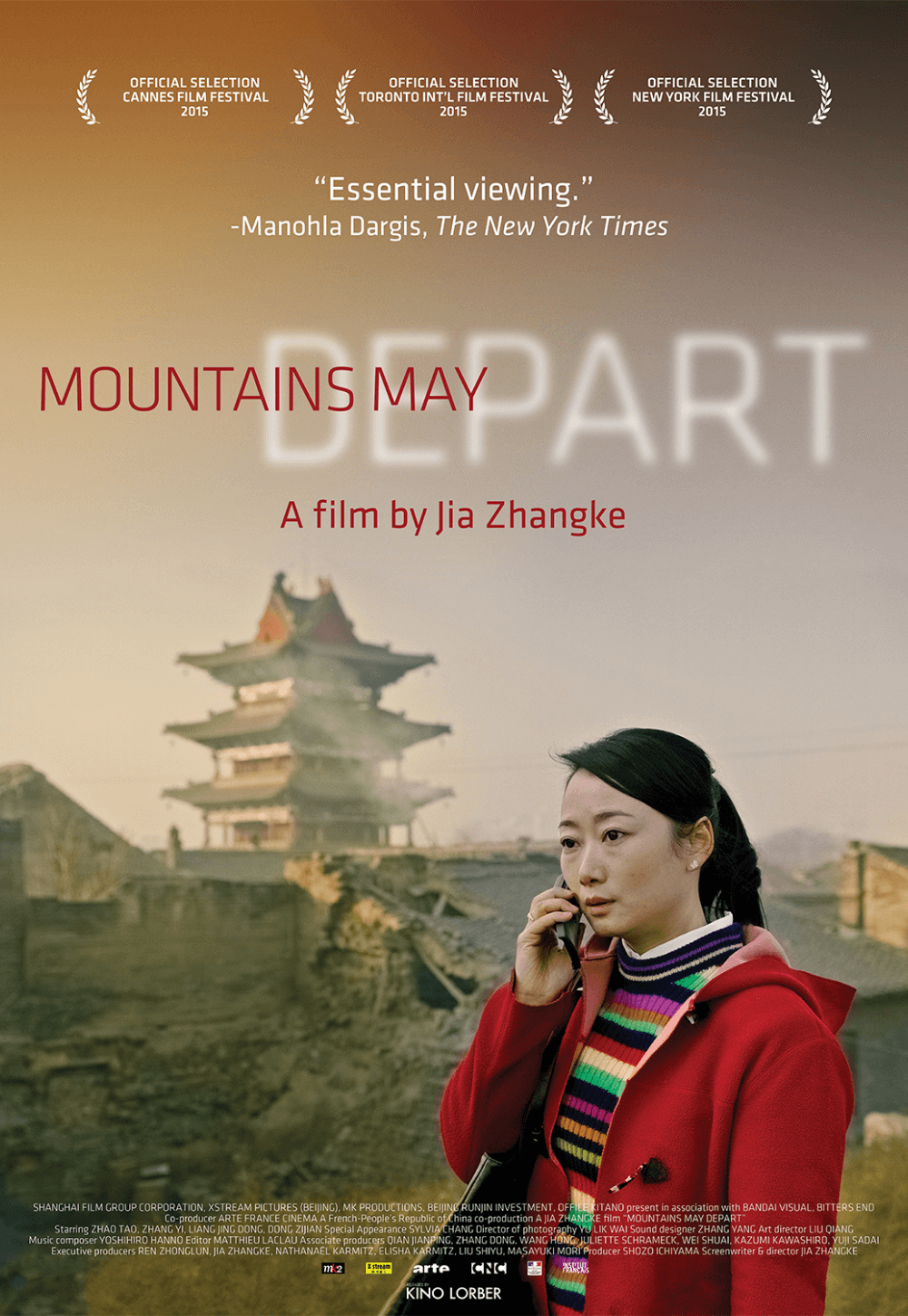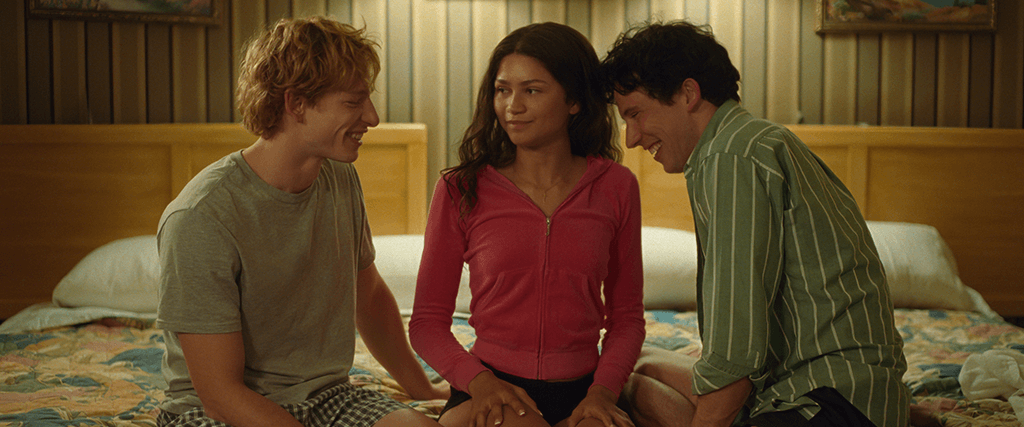
Challengers
By Brian Eggert |
Note: The review was originally published on April 12, 2024.
The metaphor isn’t subtle. Tashi Duncan, played by Zendaya, sits among the spectators at a 2019 tennis match in New Rochelle, her seat centered between the two sides of the court, facing out, perpendicular to the net. To her right, Art Donaldson (Mike Faist), her husband, a world-renowned tennis pro, poised for the US Open. To her left, Patrick (Josh O’Connor), a player struggling to make a name for himself, despite his raw skill and swagger. Patrick is also Tashi’s former boyfriend. Art and Patrick had been friends since they were preadolescents; as young men in the early 2000s, known as “Fire and Ice,” they won doubles tournaments during their time at Stanford. But they don’t speak anymore, not since Tashi and Patrick had a falling out and, years later, she married Art and became his coach. The opponents meet again, with the famous Art slumming at the menial Challenger tournament to regain his confidence, and Patrick trying to prove himself. This is the symbolic stage on which Luca Guadagnino’s Challengers plays out, a court populated by privileged, beautiful people who have devoted their lives to hitting a ball with a racket. Their match, with Tashi overseeing every maneuver, functions as an arena where the years of their complex love triangle dynamics reach a head. No, the symbolism isn’t subtle. But Guadagnino’s cinema wouldn’t be what it is without bold cinematic gestures for his rich characters.
Guadagnino is no stranger to lofty, complicated, expressive romantic relationships; he’s made several, with each set against a distinct backdrop and fully immersed in the sensuality of his characters. I Am Love (2010) finds Tilda Swinton playing the wife of a Milan textile magnate, with her character realizing that her lavish lifestyle has trapped and inhibited her Epicurean side. A Bigger Splash (2016) involves a rock star (Swinton again) and her husband’s isolated Italian villa invaded by her loud producer and his alluring, newly discovered twentysomething daughter—with a vaguely incestuous sexual tension between them brewing. Call Me By Your Name (2017) also takes place in Italy, in the 1980s, and tracks the youthful queer romance between a smart teen and an older grad student. Most recently, Guadagnino tackled a tender, deeply felt romance between two nomadic cannibals in Bones and All (2022), another 1980s-set story that sprawls in road movie fashion across the United States. It might seem like low material for a filmmaker behind such elegant stories, but he elevates the subject matter by giving his characters emotional integrity, using their appetites as a metaphor for an unforgettable first love.
If Challengers looks like the director trying something new given the tennis milieu—Guadagnino has never tackled sports, preferring instead the worlds of fashion, cuisine, music, and dancing—the film nonetheless follows his career-long interest in multifaceted romances. Tennis might be beside the point if not for it being the driving force of these characters. The screenplay comes from playwright Justin Kuritzkes, husband to Celine Song, who wrote and directed last year’s autofictional film Past Lives. Kuritzkes was the inspiration for John Magaro’s character in that film. This is to say that Kuritzkes is no stranger to intricate love triangles that develop over many years, where, in the end, the participants aren’t so much competing or taking sides but finding a way to understand and accept each other. That’s precisely what happens in Challengers, which has an ending that may induce cheers even as it raises somewhat frustrating questions about what comes next. But let’s not get ahead of ourselves, regardless of how jumping back and forth through various points in history is appropriate in a review of Challengers.
 Indeed, Guadagnino and Kuritzkes arrange a narrative that leaps back thirteen years from the present-day match in 2019. And then a few years ahead, a few days later, several years before, and so on. However confusing the temporal layout may seem initially—not helped by the youthful appearances of young actors playing several years less or more than their actual ages—the film’s structure proves rewarding for how it gradually, tantalizingly, reveals the volleying positions of each player within the triangle. It’s far more strategic than it seems, building a backstory with clever reveals, wrinkles, and betrayals along the way. The characters never become mere players in a game, however tempting it may be to see them that way. Tashi, who injures her knee early in the film, derailing what would have surely been a monumental career, still thinks in life-as-tennis terms even years later. Art’s devotion to the sport wanes after some recent struggles; he even considers retiring and becoming “just a rich person.” Patrick doesn’t know how to do anything else; he keeps playing and refuses help from his wealthy parents, evidenced by his maxed-out credit cards and use of random dating app hookups for a place to sleep.
Indeed, Guadagnino and Kuritzkes arrange a narrative that leaps back thirteen years from the present-day match in 2019. And then a few years ahead, a few days later, several years before, and so on. However confusing the temporal layout may seem initially—not helped by the youthful appearances of young actors playing several years less or more than their actual ages—the film’s structure proves rewarding for how it gradually, tantalizingly, reveals the volleying positions of each player within the triangle. It’s far more strategic than it seems, building a backstory with clever reveals, wrinkles, and betrayals along the way. The characters never become mere players in a game, however tempting it may be to see them that way. Tashi, who injures her knee early in the film, derailing what would have surely been a monumental career, still thinks in life-as-tennis terms even years later. Art’s devotion to the sport wanes after some recent struggles; he even considers retiring and becoming “just a rich person.” Patrick doesn’t know how to do anything else; he keeps playing and refuses help from his wealthy parents, evidenced by his maxed-out credit cards and use of random dating app hookups for a place to sleep.
Challengers has been advertised as a sexy threesome movie, with Zendaya in the middle of the two up-and-comers, the breakout star from Steven Spielberg’s West Side Story (2021) and the young King Charles from Netflix’s The Crown. But it’s far less sex-oriented than one versed in Guadagnino’s cinema might expect, forgoing sex scenes for loaded body language, strategic blocking, and conversations about tennis that double as frameworks for the film’s relationships. The closest Challengers gets is some intense necking and making out, Art and Patrick’s story about how the latter taught the former to masturbate, and a loaded sauna scene. But in its array of flashbacks, the film follows Humphrey Bogart’s edict from In a Lonely Place (1950) that “A good love scene should be about something else besides love.” That applies to every moment in Challengers. The question put to Tashi more than once is “Are we talking about tennis?” Is there anything else? The sport she can no longer play due to an injury is the wellspring from which everything else draws meaning. Walk away, and you walk away from her. Even Tashi’s parents and child seem like secondary concerns, which will surely make the character seem cold to more prudish moviegoers. Tashi isn’t interested in idleness; she feeds on competition—the better it is, the more meaningful it is, and the more likely she is to let out a victorious, animalistic roar upon her victory. But that doesn’t mean she’s not conflicted about her feelings.
Kuritzkes’ screenplay has a structure that adds building blocks to the triple-tiered relationship at the center, gradually erecting a tower from which we can see why the framework tournament has such significance for everyone involved. Even so, such scenes contain no end of speculation about Art and Patrick’s feelings for each other, especially after Tashi encourages them to kiss and, when they do, she sits back to watch them get lost in the moment, as though she’s not even in the room. The question remains: What does she want from them or any relationship? A peer, a lover, a student, a sparring partner, a fuckbuddy? Her relationship with Art has shades of the one in Phantom Thread (2017), in that there’s a clear exchange and power dynamic going on, with Tashi asking herself what’s in it for her and, in a way, dominating Art. Twice in the film she issues contests for her affection, initially offering her number to the winner of a match between them, or later putting her marriage on the line. Everyone plays against everyone else for personal gain; though, that isn’t the sole reason. The whole arrangement doesn’t become clear until the final frames, and even then, the viewer may have questions about what that final scene reveals. Will Art save his marriage by winning? Will they become a throuple? Will Tashi step aside so Art and Patrick can be together? Do these questions matter?
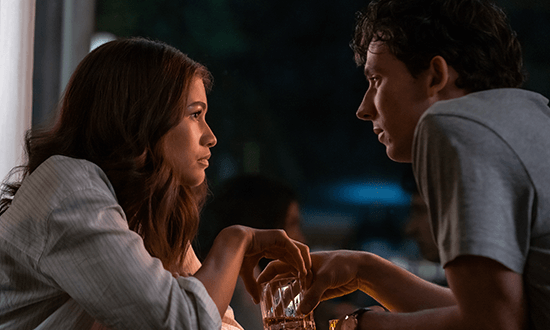 Guadagnino might be the most sensuous filmmaker working today, capable of conjuring phantom senses by manipulating the cinematic apparatus to delirious heights. With an array of vivid camera angles by cinematographer Sayombhu Mukdeeprom, including a tennis ball cam, a player cam, an onscreen scoreboard, and fluid movements of the frame throughout largely dialogue-centric scenes, the filmmakers make even the most negligible moments come alive. Alfred Hitchcock fans watching will note the inevitable Strangers on a Train (1951) visual reference, where a solitary observer of a tennis match remains immobile while the spectators’ heads follow the ball from left to right. Guadagnino draws out other similarities, such as the hinted queerness in Hitchcock’s film, the less subtextual link between the two male leads, and the notion of a “criss cross,” albeit with a woman and not a murder. The director also nods to Hitchcock’s otherwise unrelated early silent film, The Lodger: A Story of the London Fog (1927), with a shot looking up from beneath the transparent ground. Aurally, nearly the entire film receives its energizing pulse from the marvelous, electronic, thumping music by Trent Reznor and Atticus Ross, reteaming with the director after Bones and All in a must-download-now score.
Guadagnino might be the most sensuous filmmaker working today, capable of conjuring phantom senses by manipulating the cinematic apparatus to delirious heights. With an array of vivid camera angles by cinematographer Sayombhu Mukdeeprom, including a tennis ball cam, a player cam, an onscreen scoreboard, and fluid movements of the frame throughout largely dialogue-centric scenes, the filmmakers make even the most negligible moments come alive. Alfred Hitchcock fans watching will note the inevitable Strangers on a Train (1951) visual reference, where a solitary observer of a tennis match remains immobile while the spectators’ heads follow the ball from left to right. Guadagnino draws out other similarities, such as the hinted queerness in Hitchcock’s film, the less subtextual link between the two male leads, and the notion of a “criss cross,” albeit with a woman and not a murder. The director also nods to Hitchcock’s otherwise unrelated early silent film, The Lodger: A Story of the London Fog (1927), with a shot looking up from beneath the transparent ground. Aurally, nearly the entire film receives its energizing pulse from the marvelous, electronic, thumping music by Trent Reznor and Atticus Ross, reteaming with the director after Bones and All in a must-download-now score.
Guadagnino’s cast is terrific, with Zendaya giving her most dimensional performance yet, while Faist and O’Connor inhabit nuanced personalities that remain cagey and noncommittal. Each actor is capable of evoking the many equivocations in Kuritzkes’ script, making each scene tantamount to an intense match point where anyone could come out ahead. Challengers presents tennis, in Tashi’s terms, as “a relationship,” and a relationship with a competitive component that, in some instances, may look heartless and unforgiving. Trust is betrayed. Boundaries and vows are broken. But every emotion is deeply felt, and watching them maneuver each other is a rhapsodic experience, emboldened by Guadagnino’s cinematic bravado and reinforced by the trio of brilliant performances. Challengers is one of those rare films that ensnares you like a tractor beam from start to finish, leaving you unable to escape its intelligent script, formidable characters, superb cast, and lavish filmmaking that imbues every moment with an extra layer of aesthetic pleasure. It stays with you for days, leaving you high from Guadagnino’s direction and the material delivering on every level, which is exactly what great cinema should do.
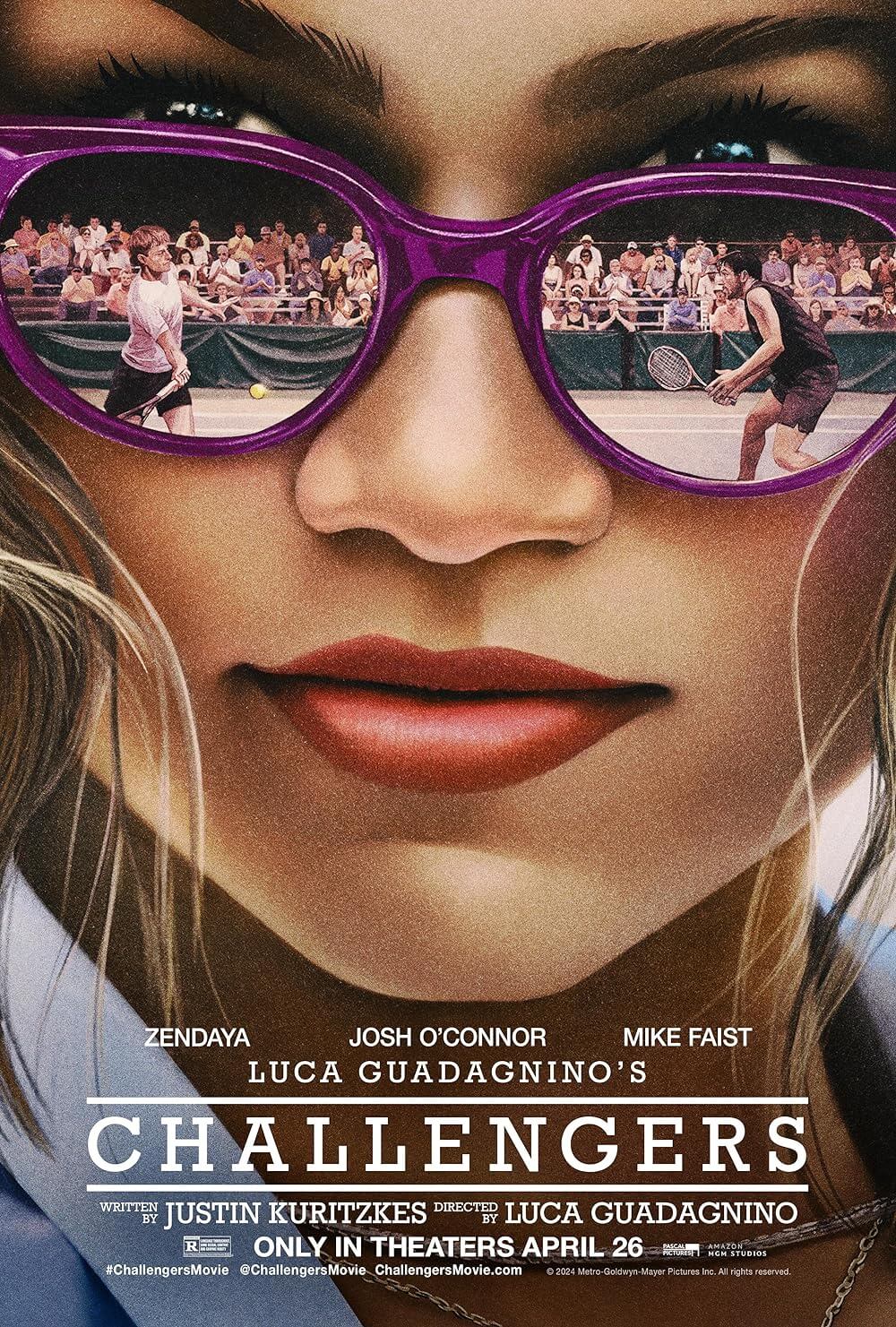
Consider Supporting Deep Focus Review
I hope you’re enjoying the independent film criticism on Deep Focus Review. Whether you’re a regular reader or just occasionally stop by, please consider supporting Deep Focus Review on Patreon or making a donation. Since 2007, my critical analysis and in-depth reviews have been free from outside influence. Becoming a Patron gives you access to exclusive reviews and essays before anyone else, and you’ll also be a member of a vibrant community of movie lovers. Plus, your contributions help me maintain the site, access research materials, and ensure Deep Focus Review keeps going strong.
If you enjoy my work, please consider joining me on Patreon or showing your support in other ways.
Thank you for your readership!
Brian Eggert | Critic, Founder
Deep Focus Review


